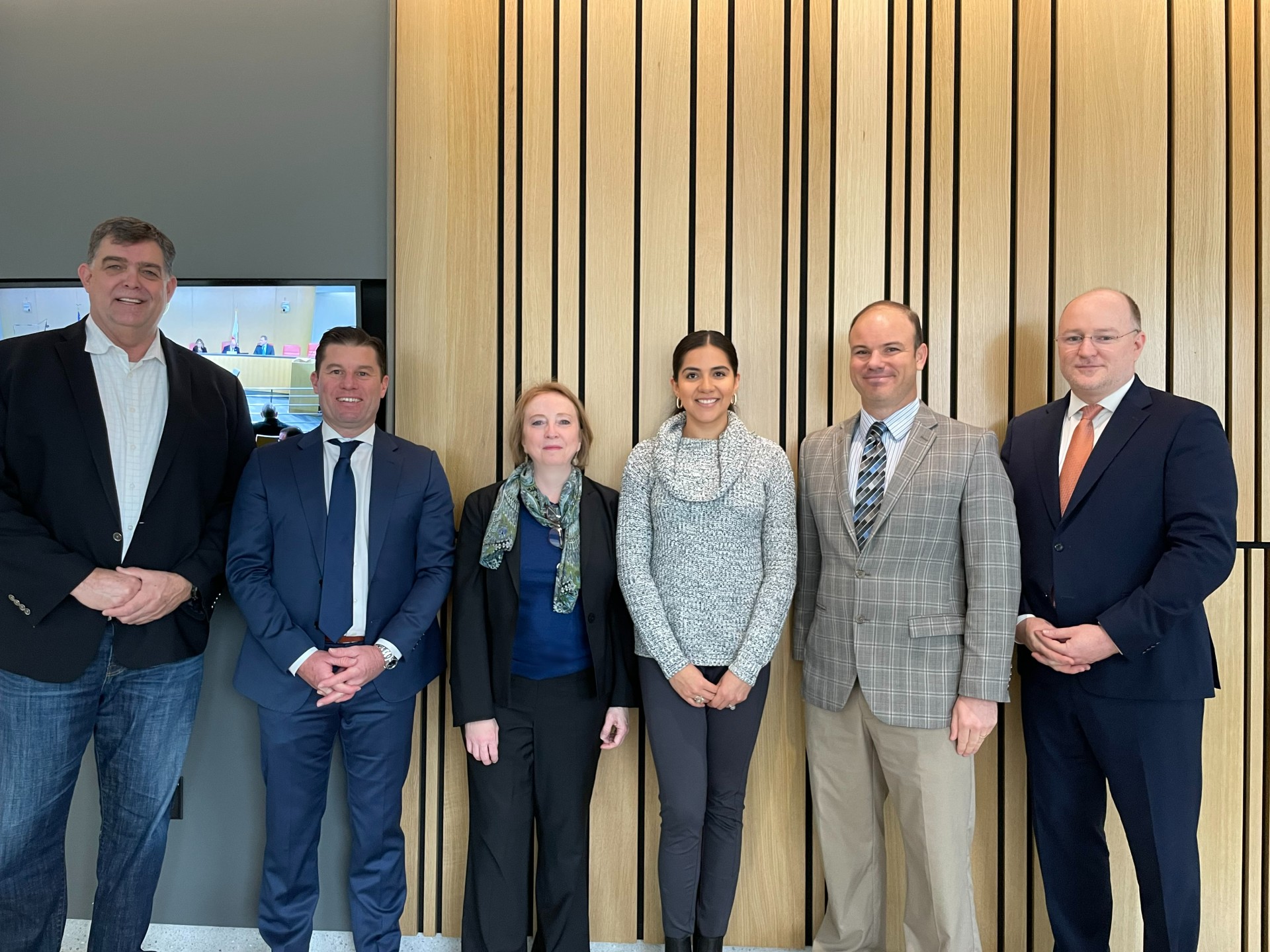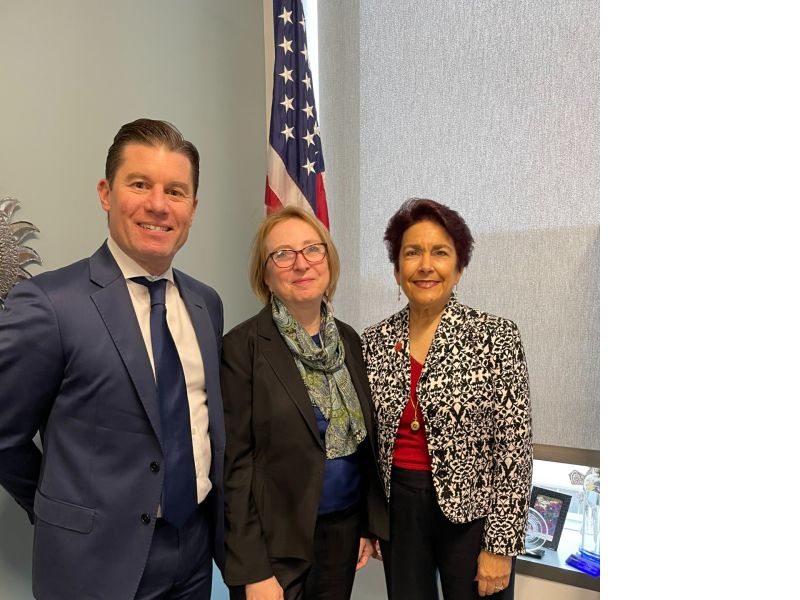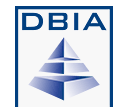
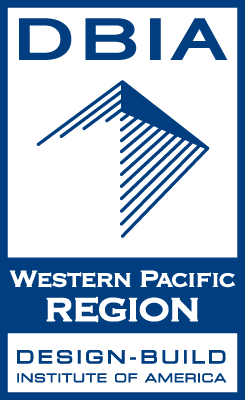 Skip header and jump directly to primary site navigation.
Skip header and jump directly to primary site navigation.

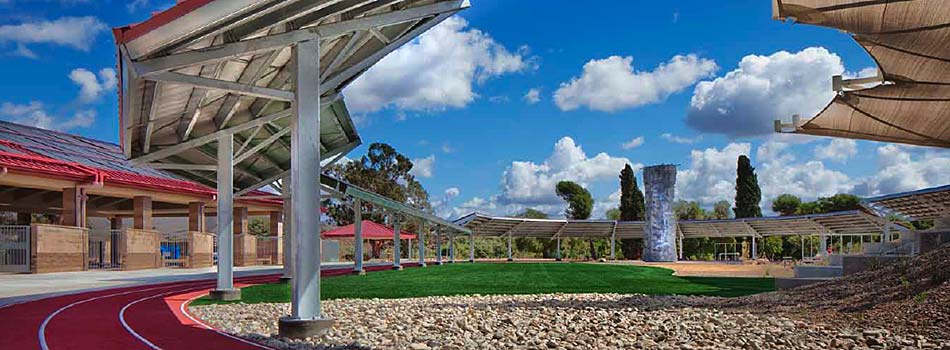
2012 DBIA WPR Award Winner: NAVFAC SW, Wounded Warrior Hope & Care Center & HQ - Camp Pendleton, Balfour Beatty Construction, cass|sowatsky|chapman + associates
The Legislature returns on August 18th for a flurry of bill action before adjourning the first half of the 2025–26 biennial session on September 12th until the return January 2026.
AB 533 – Health Care Districts and Design-Build Contracting
DBIA testified in favor of AB 533, which was recently signed by the Governor (see attached letter from Simin).
AB 533 allows a health care district that owns or operates a hospital or clinic to use the design-build contracting method for the construction or improvement of hospital or health facility buildings.
Click here for the full text of the bill – AB 533: Health care districts: design-build process.
SB 706 – Progressive Design Build (PDB)
While we successfully sponsored SB 706, which established Progressive Design Build in statute, the work is not finished.
Legislative Chair Chris Sullivan is hosting quarterly meetings with owners and members of the legislative committee to continue discussions on best practices for PDB. These meetings also ensure that owners not only use PDB but also keep records to fulfill the statute’s study mandate.
If you are interested in participating in the open Zoom discussion, please contact Chris Sullivan at:
Christopher M. Sullivan – cmsullivan@sundt.com
SB 706 – Reporting Requirements and Study Mandate
Under SB 706, a study is mandated to assess the usage and performance of PDB. Local agencies using PDB must submit detailed reports to the relevant legislative committees by December 31, 2028.
Required reporting elements (per statute 22185.8):
Why Reporting Matters
Historically, insufficient data has posed challenges for new procurement tools like PDB. Early DB implementations lacked robust project data, which raised questions about their statewide viability. Although PDB is now codified in statute, its credibility still depends on strong examples and data. Without this, the Legislature could respond negatively.
The 2023-24 Legislative Session concluded with notable developments in the Design-Build (DB) and Progressive Design-Build (PDB) sectors. The passage of SB 706 formally established PDB in statute, paving the way for its integration and potential parity with DB in legislative terms. A mandated study under SB 706, due by December 31, 2028, requires detailed reporting from agencies using PDB, stressing the importance of proactive monitoring and substantial project data. Below is an overview of recent legislative actions, specific requirements of SB 706, and key considerations for the upcoming legislative session.
This year concludes the 2023-24 Legislative Session. While we did not directly sponsor a bill, significant activity occurred in the Design-Build/Progressive Design-Build legislative arena. With the successful passage of SB 706, PDB is now recognized in various bills and budget actions, marking the beginning of efforts to cement this procurement option in statute. Moving forward, fulfilling SB 706’s reporting requirements will be key to demonstrating PDB’s effectiveness and securing its place alongside DB in state legislation.
Under SB 706, a study is mandated to assess the usage and performance of PDB. Local agencies using PDB must submit detailed reports to relevant legislative committees by December 31, 2028. The following are the required elements as stipulated in statute 22185.8:
1. A description of the project or projects awarded using the progressive design-build process.
2. The contract award amounts.
3. The design-build entities awarded the project or projects.
4. A description of any written protests concerning any aspect of the solicitation, bid, or award of the contracts, including the resolution of the protests.
5. A description of the prequalification process.
6. The number of specialty subcontractors, by construction trade type, who provided design services but did not meet the target price for their scope of work and thus did not perform construction services.
7. Indications of whether any portion of a design prepared by a specialty subcontractor, who did not perform construction, was used by the local agency.
8. The number of specialty subcontractors, by construction trade type, meeting the definition of a small business as defined in Section 14837 of the Government Code.
9. The number of specialty subcontractors, by construction trade type, meeting the definition of a microbusiness as defined in Section 14837 of the Government Code.
10. For completed projects, an assessment of project performance, including summaries of any delays or cost increases.
Historically, insufficient data has posed challenges for new procurement tools like PDB. Previous studies, including early DB implementations, lacked robust project data, leading to questions regarding their statewide viability. Although PDB is in statute, the fight for its credibility isn’t over. Failure to provide robust examples may result in a negative legislative response.
This legislative session, PDB was specifically referenced in a few bills. Additionally, school districts’ authorization for DB was extended indefinitely, a notable milestone for DBIA in the State of California. This extension reflects DB’s proven success and long-standing track record.
By February, we should have a clearer outlook on the legislative landscape for DB and PDB. DBIA-WPR can then guide our stance on whether to support, oppose, or amend relevant measures.
April 2023 Update
Last week the California Senate Governance & Finance Committee had a hearing at the State Capitol on Senate Bill 706 sponsored by @Design Build Institute of America - Western Pacific Region, League of California Cities and California State Association of Counties®. SB 706 authorizes all cities, counties or special districts to use the progressive design-build process to complete public works projects more quickly and at a lower cost, allowing public dollars to provide greater benefits to the public without sacrificing important protections the public expects.. DBIA-WPR President Marianne O'Brien, FAIA LEED AP and DBIA-WPR President Emeriti, J. Brandon Dekker, M.S., DBIA both testified in front of the Committee. With their efforts, combined with others tagged below, SB 706 received a unanimous 8-0 yes vote to move onto the Appropriations Committee next. Follow us to stay informed on this important piece of legislation.
.jpg)
